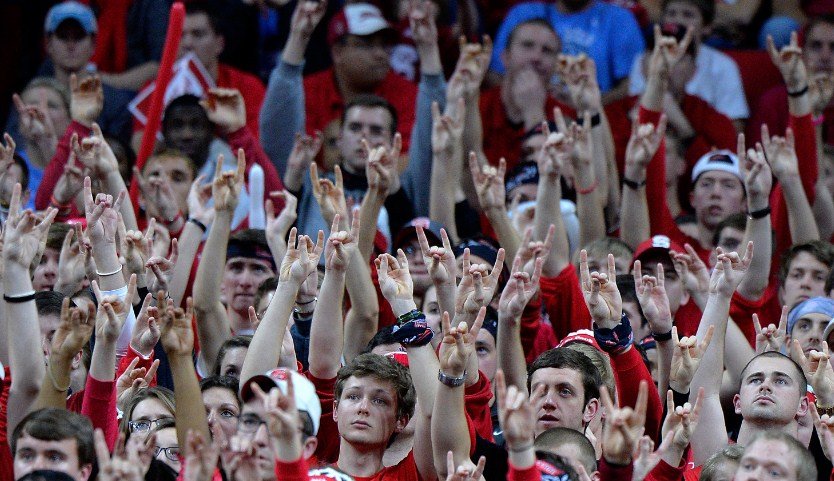Sports, once a source of joy and entertainment for millions of people, are now facing an inevitable end. The rise of gambling, corruption, greed, and violence has tarnished the image and spirit of sports. Many fans are losing interest and faith in their teams and players, as they witness the degradation of sportsmanship and ethics.
Gambling takes over the game
One of the main factors that has contributed to the downfall of sports is the proliferation of gambling. Sports betting has become a huge industry, with billions of dollars at stake every year. While some may argue that gambling adds excitement and thrill to sports, it also brings a lot of negative consequences.
Gambling can influence the outcome of games, as players, coaches, referees, or officials may be tempted to manipulate the results for their own benefit or under external pressure. Gambling can also create conflicts of interest, as some sports organizations or media outlets may have partnerships or affiliations with gambling companies. Gambling can also affect the integrity and credibility of sports, as fans may question the legitimacy and fairness of the competitions.
Gambling can also have a detrimental impact on the behavior and well-being of fans. Some fans may become addicted to gambling, spending more money than they can afford or risking their health and relationships. Some fans may also become aggressive or abusive towards other fans or players, especially if they lose their bets or disagree with the decisions made on the field. Gambling can also diminish the enjoyment and appreciation of sports, as fans may focus more on the financial outcomes than on the performance and skills of the athletes.
Corruption erodes trust and confidence
Another factor that has contributed to the demise of sports is the widespread corruption that plagues many sports organizations and institutions. Corruption can take many forms, such as bribery, match-fixing, doping, fraud, embezzlement, or extortion. Corruption can undermine the values and principles that sports are supposed to uphold, such as honesty, fairness, respect, and excellence.
Corruption can also damage the reputation and image of sports, as fans may lose trust and confidence in their favorite teams or players. Corruption can also harm the development and growth of sports, as it may divert resources and opportunities away from deserving athletes or programs. Corruption can also threaten the safety and security of sports, as it may expose players or fans to violence or criminal activities.
Corruption can also have a negative impact on the society and economy at large. Corruption can foster a culture of impunity and cynicism, where people may lose faith in the rule of law and justice. Corruption can also drain public funds and resources, depriving other sectors and services of much-needed support. Corruption can also discourage investment and innovation, hampering the potential and progress of sports.
Greed fuels exploitation and inequality
A third factor that has contributed to the end of sports is the rampant greed that drives many sports entities and individuals. Greed can manifest itself in various ways, such as excessive salaries, bonuses, fees, or endorsements; unfair contracts, deals, or transfers; or illegal or unethical practices or transactions. Greed can distort the purpose and meaning of sports, turning them into a mere business or commodity.
Greed can also lead to exploitation and inequality in sports. Some players or teams may be exploited by their agents, managers, owners, or sponsors, who may take advantage of their talent or popularity for their own gain. Some players or teams may also be discriminated against or marginalized by their leagues, associations, or federations, who may favor certain groups or interests over others. Greed can also create a gap between the rich and poor in sports, where some players or teams may have access to better facilities, equipment, training, or opportunities than others.
Greed can also have a negative impact on the environment and society. Greed can cause environmental degradation and pollution, as some sports events or venues may consume excessive amounts of energy or resources or generate harmful waste or emissions. Greed can also cause social unrest and conflict, as some sports fans or communities may feel alienated or resentful towards other groups or regions that have more power or influence in sports.
Violence ruins the spirit and fun of sports
A final factor that has contributed to the doom of sports is the increasing violence that occurs in many sports arenas and fields. Violence can involve physical or verbal attacks, threats, harassment, intimidation, or vandalism. Violence can target players, coaches, referees, officials, fans, journalists, or bystanders. Violence can be motivated by various reasons, such as rivalry, frustration, anger, hatred, or revenge.
Violence can destroy the spirit and fun of sports, as it can detract from the quality and beauty of the game. Violence can also injure or kill people, as it can cause serious or fatal wounds or trauma. Violence can also damage property, as it can break or vandalize equipment, facilities, or vehicles. Violence can also spark more violence, as it can escalate or spread to other situations or locations.
Violence can also have a negative impact on the mental and emotional health of people. Violence can cause fear, anxiety, stress, or depression, as people may feel unsafe or threatened by the possibility of violence. Violence can also cause anger, resentment, or hatred, as people may seek revenge or justice for the violence they experienced or witnessed. Violence can also cause apathy, indifference, or detachment, as people may lose interest or passion for sports.
Sports, once a source of joy and entertainment for millions of people, are now facing an inevitable end. The rise of gambling, corruption, greed, and violence has tarnished the image and spirit of sports. Many fans are losing interest and faith in their teams and players, as they witness the degradation of sportsmanship and ethics. Sports fans lament the decline of their favorite pastime, as they wonder if there is any hope or future for sports.

